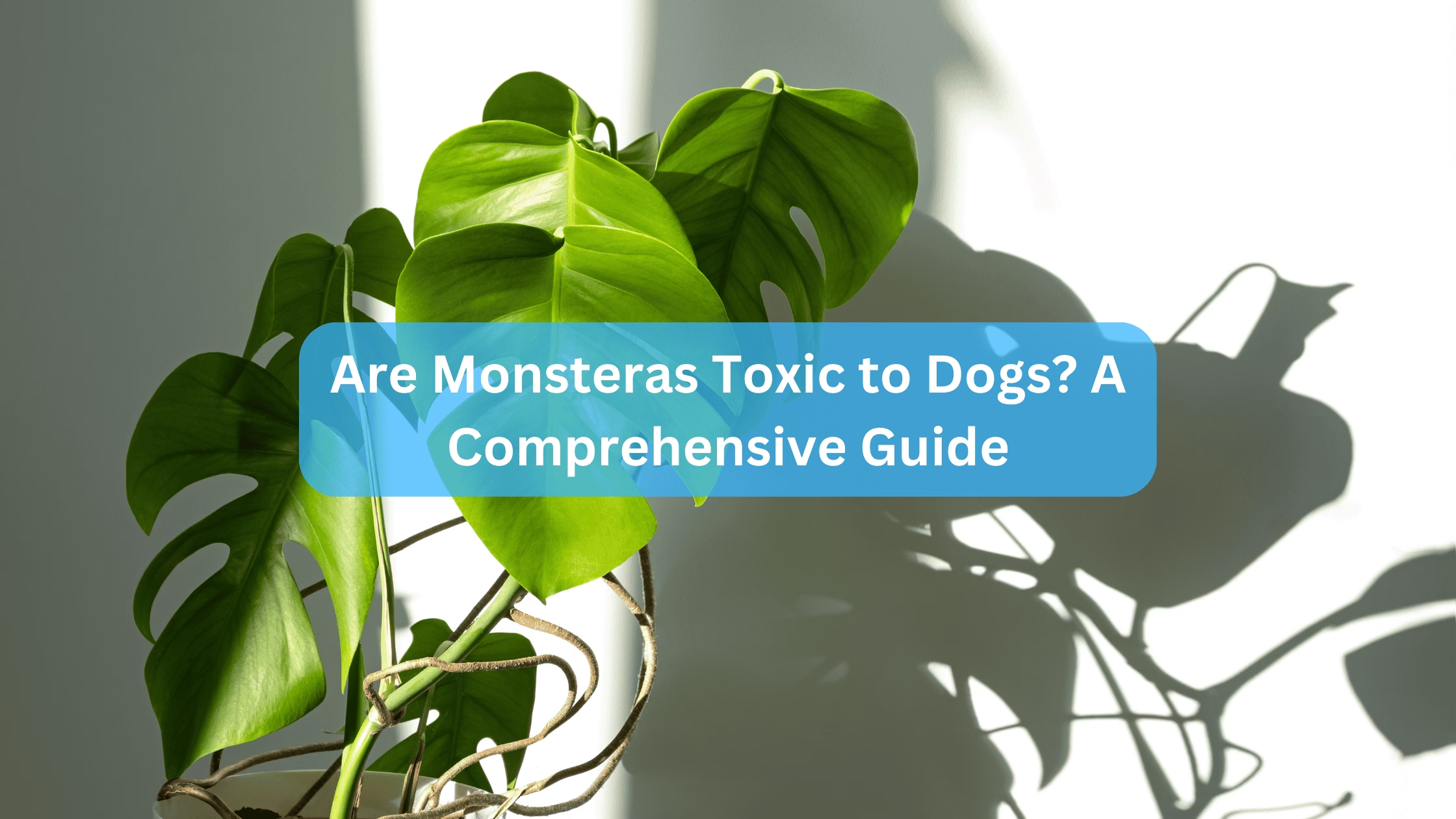As a pet owner, ensuring the safety of your furry friend while enjoying houseplants is crucial. One common concern among dog owners is whether monsteras are toxic to dogs. This comprehensive guide will explore the implications of “Are Monsteras toxic to dogs?” and provide valuable information regarding symptoms, treatment options, and preventive measures.
Understanding Monstera Plants
Monstera, particularly Monstera deliciosa, is a popular houseplant known for its striking foliage and ease of care. However, it contains compounds that can be harmful to dogs.
Toxic Components
- Calcium Oxalate Crystals: The primary toxins in monstera plants are insoluble calcium oxalate crystals. When ingested, these crystals can cause irritation in the mouth and gastrointestinal tract.
Identifying Symptoms of Monstera Toxicity in Dogs
If your dog has ingested any part of a monstera plant, it’s essential to recognize the symptoms of toxicity:
- Oral Irritation: Excessive drooling, pawing at the mouth, or difficulty swallowing may indicate oral irritation.
- Gastrointestinal Upset: Signs include vomiting, diarrhea, and loss of appetite.
- Swelling: In severe cases, swelling in the mouth or throat can occur, leading to difficulty breathing.
Immediate Steps to Take if Your Dog Ingests Monstera
If you suspect your dog has eaten a monstera plant, follow these steps:
- Stay Calm: While it’s natural to panic, staying calm will help you think clearly.
- Remove Plant Material: If possible, remove any remaining plant material from your dog’s mouth.
- Rinse the Mouth: Rinse your dog’s mouth with clean water to help dislodge any crystals.
- Encourage Drinking Water: Offer fresh water to dilute any toxins ingested.
- Contact Your Veterinarian: It’s crucial to consult your vet for advice tailored to your dog’s situation.
Treatment Options for Monstera Toxicity
Treatment for a dog that has ingested monstera will depend on the severity of the symptoms:
- Mild Symptoms: For mild cases, your veterinarian may recommend monitoring your dog at home and providing supportive care.
- Severe Symptoms: If your dog exhibits severe symptoms such as difficulty breathing or excessive swelling, immediate veterinary attention is necessary. Your vet may induce vomiting or administer activated charcoal to absorb toxins.
When to Seek Professional Care
It’s essential to seek veterinary care if you notice any of the following:
- Persistent vomiting or diarrhea
- Difficulty breathing
- Swelling around the mouth or throat
- Lethargy or unusual behavior
Preventive Measures for Keeping Dogs Safe from Monsteras
To prevent accidental ingestion of monstera plants by your dog, consider these strategies:
1. Spatial Arrangement
- Elevate Plants: Place monsteras on high shelves or use hanging planters that are out of reach of curious dogs.
- Designate Off-Limits Areas: Keep plants in rooms that are off-limits to pets.
2. Barriers and Training
- Use Baby Gates: Install barriers to restrict access to areas with plants.
- Positive Reinforcement Training: Train your dog using positive reinforcement techniques to avoid plants. Reward them for obeying commands like “leave it.”
3. Natural Deterrents
- Citrus Scents: Dogs often dislike citrus scents; using citrus peels or sprays can deter them from approaching plants.
- Commercial Pet Deterrents: Apply pet-safe deterrent sprays around the plant area (never directly on the plant).
Related Questions About Monstera Toxicity in Dogs
Are all parts of the monstera plant toxic?
Yes, all parts of the monstera plant contain calcium oxalate crystals and can be harmful if ingested by dogs.
What should I do if my dog shows signs of toxicity?
Contact your veterinarian immediately if you notice symptoms such as excessive drooling, vomiting, or difficulty breathing after ingestion.
Can small amounts of monstera harm my dog?
Even small amounts can cause discomfort; however, severe reactions depend on factors like the size of your dog and the amount consumed.
How can I keep my dog away from my monstera plant?
Use barriers like baby gates, elevate plants out of reach, and train your dog with commands like “leave it.”
Also Read: Can Dogs Eat Sourdough Bread? A Comprehensive Guide
Also Read: Can Dogs Have String Beans? A Comprehensive Guide
Conclusion: Are Monsteras Toxic to Dogs
In conclusion, while monsteras are beautiful additions to any home, they are indeed toxic to dogs due to their calcium oxalate content.
Understanding how to identify symptoms of toxicity and knowing what steps to take if ingestion occurs is crucial for every pet owner.
By implementing preventive measures and being vigilant about your dog’s behavior around houseplants, you can create a safe environment for both your pets and your beloved plants.
Always consult with a veterinarian if you have concerns about your dog’s health following exposure to a monstera plant!
Sources:
- https://greg.app/monstera-albo-toxic-to-dogs/
- https://www.aspca.org/pet-care/animal-poison-control/toxic-and-non-toxic-plants/swiss-cheese-plant







